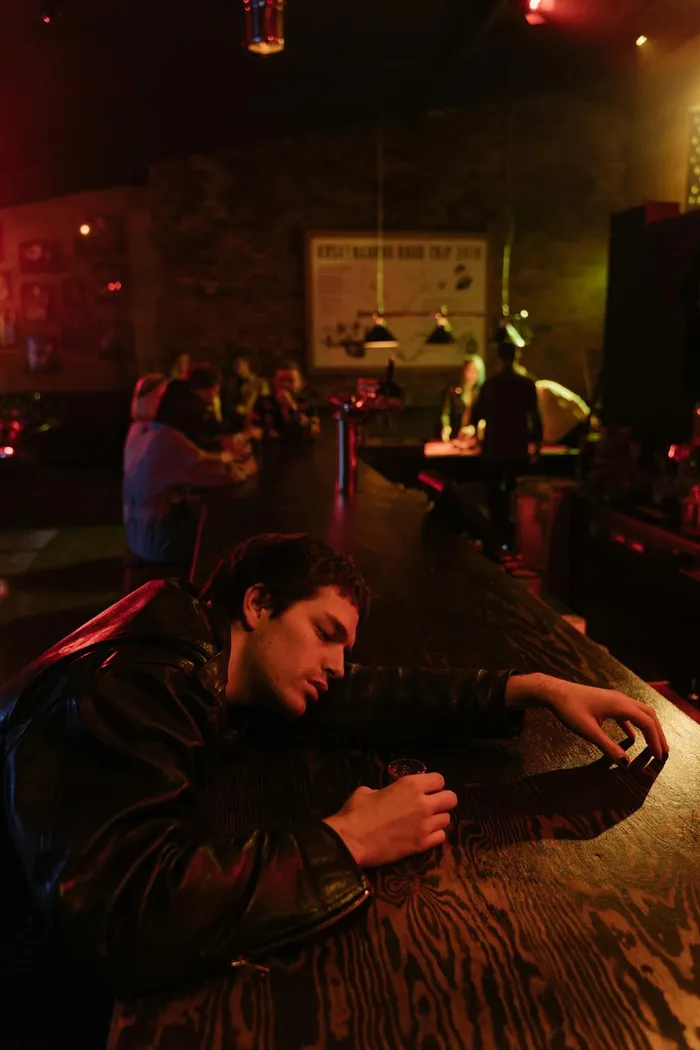The dark side of coping: man dies from malnutrition after relying on beer post-divorce

Alcohol may numb pain short-term, but worsens emotional and physical well-being long-term.
Image: Cottonbro studio/Pexels
When heartbreak hits, it can feel like the ground has been ripped out beneath you.
For some, the pain of a breakup or divorce is so consuming that even eating feels impossible. Others turn to alcohol, hoping to numb the ache even if only for a little while.
However, one tragic story from Thailand illustrates how this coping mechanism can quickly become deadly
A 44-year-old man, Thaweesak Namwongsa, recently made headlines after being found dead in his bedroom by his teenage son.
According to reports from LADbible and MSN, Namwongsa had been drinking only beer for nearly a month after separating from his wife, refusing to eat solid food despite his son’s desperate attempts to cook him meals.
Paramedics found over 100 empty beer bottles in his room, lined up so tightly that only a narrow walkway led to his bed.
Authorities suspect that excessive alcohol consumption and malnutrition contributed to his tragic death.
This heartbreaking case shines a light on the hidden dangers of using alcohol to cope with emotional pain, a choice many silently make when grief or heartbreak feels unbearable.
Why alcohol feels like an easy escape
Breakups activate the same brain pathways linked to physical pain.
A study from the Journal of Neurophysiology found that rejection triggers the brain’s pain centers much like a burn or injury would.
It’s no wonder people reach for a drink; it dulls the edges of the hurt, at least temporarily.
“Alcohol gives a false sense of relief,” explains Dr George Koob, director of the US National Institute on Alcohol Abuse and Alcoholism (NIAAA).
“But instead of helping, it actually interferes with the brain’s ability to regulate emotions, often worsening anxiety and depression in the long run."
The hidden cost of drinking through heartbreak
While grabbing a glass of wine or a few beers after a tough breakup might feel normal, relying on alcohol as a replacement for food or for emotional healing comes with steep consequences:
- Nutrient deficiency: Beer may have calories, but it lacks protein, vitamins and minerals. Relying on it as a “meal” starves the body of essential nutrients.
- Liver damage: Heavy drinking is directly linked to liver disease, cirrhosis and increased risk of cancer.
- Weakened mental health: Alcohol is a depressant. Studies published in Addiction show that chronic drinking is strongly linked to worsening depression and suicidal thoughts.
- Body breakdown: Without proper nutrition, organs, including the heart and brain, can fail. This is what tragically may have happened in Namwongsa’s case.
Healthier ways to cope with heartbreak
If you or someone you know is tempted to drown sorrows in alcohol, there are healthier coping mechanisms that not only protect your body but also help heal your mind:
- Talk it out: Confide in a friend, family member or therapist. Sharing the pain makes it lighter.
- Move your body: Exercise boosts endorphins, the body’s natural mood lifters, proven to reduce stress and anxiety.
- Eat nourishing foods: Heartbreak might suppress appetite, but even small, nutrient-rich meals can help stabilise your mood.
- Practice mindfulness: Breathing exercises, journaling or meditation can calm racing thoughts.
- Limit alcohol: A drink here and there won’t harm, but moderation is key. The World Health Organization (WHO) reminds us: no level of alcohol consumption is completely safe for health.
Heartbreak is universal; almost everyone has been through it at some point. But how we cope determines whether we heal or harm ourselves.
Stories like Namwongsa’s serve as stark reminders that alcohol is not a cure for pain. Instead, it’s a dangerous detour that can spiral into dependency, illness or worse.
If you are struggling, reaching out for support can make all the difference.
In South Africa, you can call:
South African Depression & Anxiety Group: 0800 21 22 23 or 0800 456 789
Substance Abuse 24-Hour Helpline: 0800 12 13 14.
Related Topics: